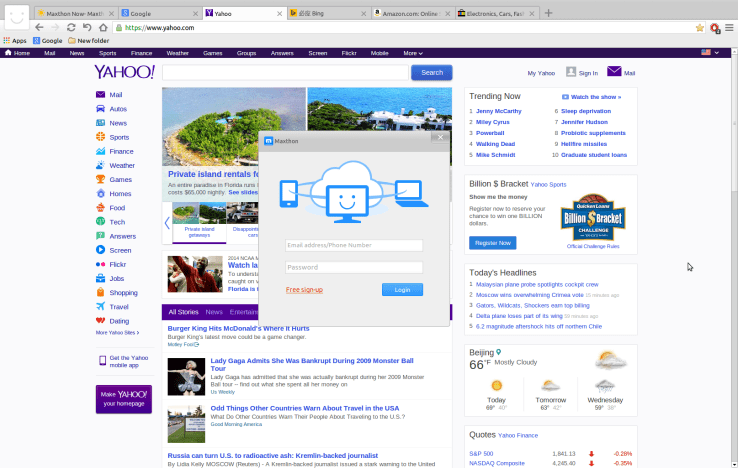Maxthon has launched its first cloud browser for Linux. The release is partly in response to requests from Maxthon’s users, but also because the open-source operating system has become speedier, says Karl Mattson, the company’s vice president.

“If people haven’t taken a look at Linux for a while, they should take a second look because it’s a great product. The chorus of people emailing us asking for Linux has gotten a lot louder,” says Mattson.
He adds that Maxthon for Linux has a bigger feature set than the company usually includes in browsers when they launch for the first time on an operating system, including “Magic Fill,” an AES 256 level encrypted password and user account prompt, and mouse gestures, which lets users execute browser commands by making a gesture with their mouse.
Maxthon for Linux fits into the company’s strategy of following its users across different platforms. While its focus over the past year has been on mobile, Maxthon also recentlylaunched a new Windows desktop browser. Mattson says the company plans to continue working on new releases and content partnerships for desktop users.
Factors that may spur the adoption of Linux by enterprise users and individual consumersinclude the end of support for Windows XP, its compatibility with older hardware, and increasing ease of use. Mattson adds that Linux is also becoming more popular in emerging markets such as Russia, which are key regions for Maxthon. The company’s browsers currently reach 100 million unique devices each month and its top four markets are China, the U.S., Russia, and India.
Future version of Maxthon for Linux will have localized features for different countries. In Russia, where Maxthon has a content partnership with Yandex, browsers are customized for major cities like St. Petersburg and Moscow. These include a taxi-calling service that geo-locates users through their browser and helps them call a car service. Other potentially important markets for Maxthon’s Linux browser include India, the U.S., China, Brazil, and Indonesia.
